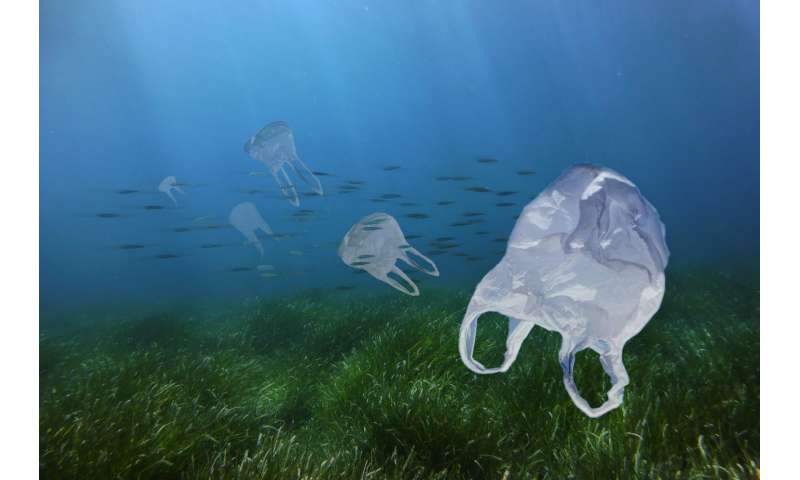How does microbial degradation of plastics work in the ocean?

How does microbial degradation of plastics work in the ocean? Very little is known about this important process, while vast quantities of plastic litter enters the oceans and threaten marine life. The key factors controlling microbial degradation are largely unknown. NIOZ marine scientist Helge Niemann was awarded a grant of 2 million euro by the European Research Council (ERC) to find out how the process of microbial degradation works in the ocean.
The ever-increasing demand for plastics has led to continuous release of plastics to the sea. Plastics are synthetic, and thus rather new, 'unconventional' and persistent compounds in the marine realm, yet microbes may utilize plastics as carbon substrates. "In fact, we don't know how long plastics survive in the ocean and how much plastic is degraded by microbes", says Niemann.
Which microbes feed on plastic?
"There is a knowledge gap in understanding the fate of plastics in the oceans. I want to know how microbial degradation works in the water column and in the sediments. Which microbes can feed on plastic and which environmental conditions control this enigmatic process?"
To study this, Niemann will gather a team of young scientists at the NIOZ Netherlands Institute for Sea Research. Within the 5 year-long VORTEX project, they will conduct a series of 'feeding' experiments using isotopically labelled plastics. These are plastics in which the regular carbon atoms are exchanged with a heavy carbon isotope. Microbes that are feeding on this plastic will take up and digest the heavy carbon. "The Marine Microbiology and Biogeochemistry Department at NIOZ has very sensitive machines to trace the heavy carbon into degradation products and diagnostic molecules such as lipid biomarkers and DNA. This will allow the VORTEX team to measure the rate of degradation and to identify the plastic-eating microbes", explains Niemann the cutting-edge stable isotope assays. "I hope this will lead to a breakthrough in our understanding of microbial plastic degradation in the ocean".
Extremely important environmental outlook
The jury called Niemann's proposal a 'highly ambitious project with very well thought experiments and an extremely important environmental outlook'. Niemann's preliminary results are already promising. It showed that plastics can be degraded with and without oxygen in marine sediments. With the ERC grant he will further investigate the potential for microbial plastic degradation under controlled laboratory conditions and in the field ranging from the arctic to tropical marine environments. Niemann just switched from a position in Switzerland to NIOZ. "The VORTEX project will also allow a swift start of my research group to conduct frontier research for a better understanding of how key environmental issues are effecting the ocean."
Provided by NIOZ Royal Netherlands Institute for Sea Research